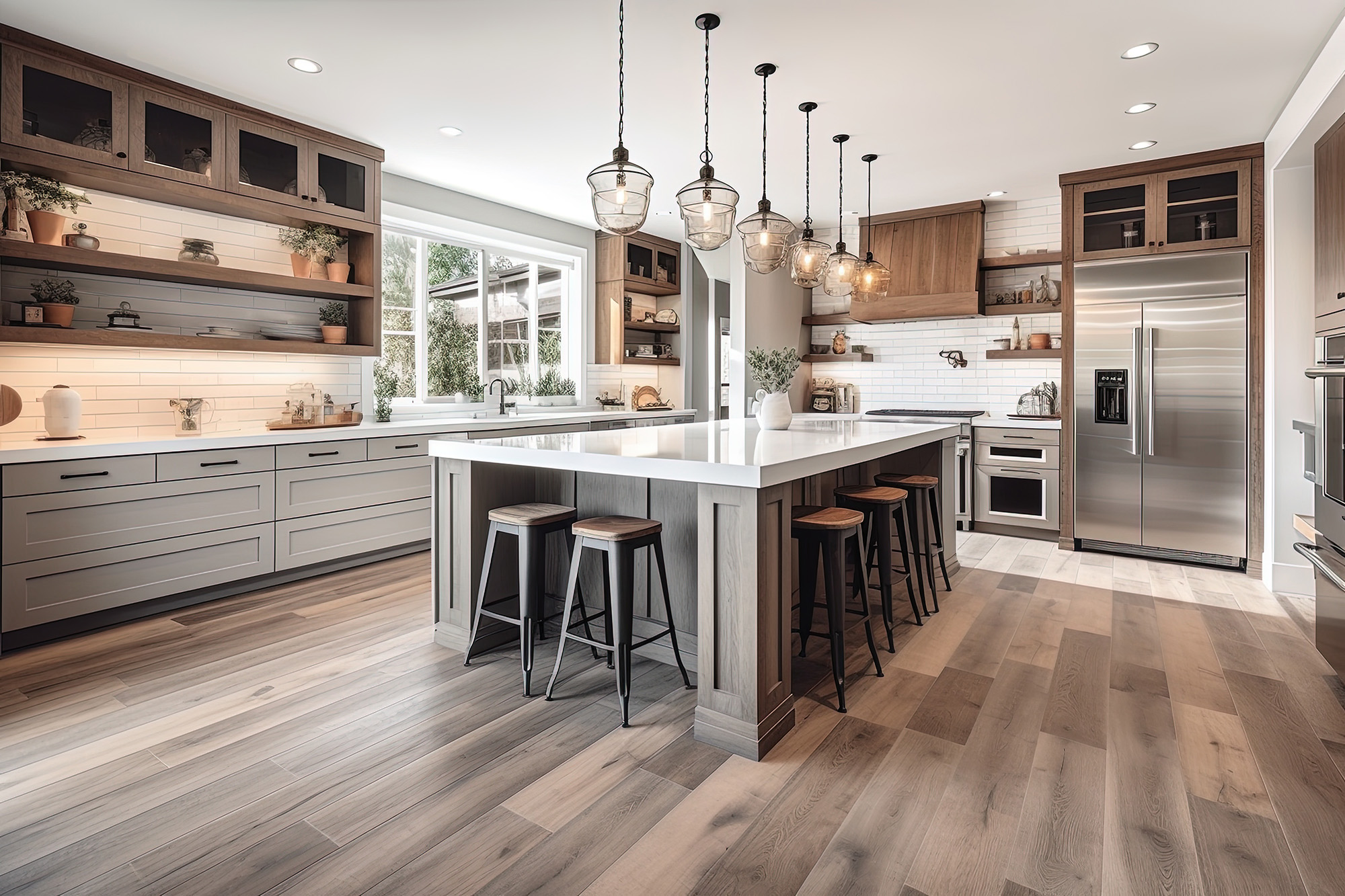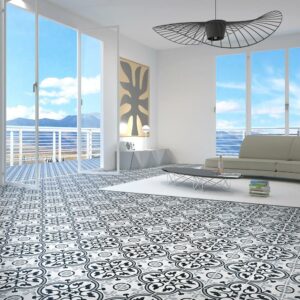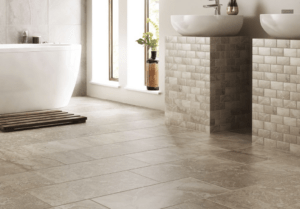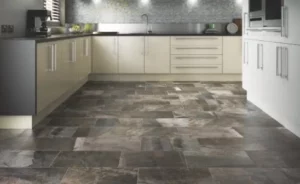Ultimate Tile Guide: Ceramic vs. Porcelain vs. Natural Stone
For homeowners in Southern California, tile is a natural choice. Its durability, easy maintenance, and ability to stay cool underfoot make it a perfect fit for a lifestyle that often blends indoor and outdoor living. But once you decide on a tile, you’re faced with another decision: which type is right for you? With so many options available, from the classic elegance of natural stone to the modern durability of porcelain, it’s easy to feel overwhelmed!
At Flooring 101, we’ve been helping residents of Ventura, Oxnard, and beyond make informed flooring decisions for over 50 years. We’ve put together this ultimate guide to tile flooring to help you break down the key differences and find the perfect material for your home.

Weighing Pros & Cons of Ceramic Tile
Ceramic tile is a timeless option, beloved for its wide range of styles and its accessibility. Made from a mixture of clay and other natural materials that are fired at high temperatures, ceramic tile is a versatile and durable floor covering that fits a variety of applications:
- Pros:
- Cost-Effective: Ceramic is typically the most budget-friendly of the three, making it an excellent choice for large areas or if you’re working with a tight budget.
- Ease of Installation: It’s relatively easy to cut and work with, which can simplify the installation process.
- Vast Selection: Ceramic tiles come in a huge array of colors, patterns, and sizes. The surface is glazed, allowing for a virtually endless range of designs that can mimic everything from natural stone to classic patterns.
- Water Resistance: While not waterproof, a glazed ceramic tile is highly resistant to spills and moisture, making it suitable for kitchens and bathrooms.
- Cons:
- Porosity: Ceramic is more porous than porcelain. This means it can absorb more water, making it less suitable for outdoor or high-moisture commercial applications.
- Durability: While durable enough for most residential use, ceramic is softer than porcelain and can be more susceptible to chipping or cracking if a heavy object is dropped on it.

Weighing Pros & Cons of Porcelain Tile
Porcelain tile is a true workhorse. Made from a finer, denser clay mixture and fired at a much higher temperature than ceramic, porcelain tile is known for its exceptional durability and superior performance:
- Pros:
- Extreme Durability: Porcelain is incredibly dense and hard, making it highly resistant to scratches, chips, and impacts. It can handle heavy foot traffic without showing signs of wear.
- Virtually Waterproof: With a water absorption rate of less than 0.5%, porcelain is perfect for high-moisture areas like shower walls, bathroom floors, and even outdoor patios in Bakersfield or Santa Maria.
- Versatile Applications: Because of its durability and water resistance, porcelain can be used in almost any area, from residential to commercial, and from indoor to outdoor.
- Realistic Designs: Porcelain is available in a stunning variety of styles, including highly realistic wood-look and stone-look options that provide the beauty of natural materials with the easy maintenance of tile.
- Cons:
- More Expensive: Porcelain is generally more expensive than ceramic, both in material and installation costs, due to its density and hardness.
- Difficult to Cut: Its extreme hardness can make it challenging to cut, requiring specialized tools and professional installation.

Weighing the Pros & Cons of Natural Stone Tile
Natural stone tile, such as marble, travertine, slate, and granite, is quarried directly from the earth. Each piece is truly unique, with its own distinct veining, color, and texture:
- Pros:
- Unmatched Beauty: Natural stone provides a level of elegance and sophistication that is impossible to replicate. Its organic patterns and rich colors can make any space feel luxurious and one-of-a-kind.
- Increases Home Value: Natural stone is considered a premium material that can significantly increase a home’s resale value.
- Timeless Appeal: Unlike trends, natural stone is a timeless material that will never go out of style.
- Cons:
- Higher Maintenance: Most natural stones are porous and require periodic sealing to protect them from stains and moisture. They can also be more susceptible to etching from acidic liquids.
- Cost: Natural stone is the most expensive of the three options, in both the material cost and the labor required for installation.
- Vulnerability: While some stones like granite are very hard, others like travertine and marble can be softer and more prone to scratches and chips.

The Right Tile for California Lifestyles
The best tile for your home depends on your specific needs. For a budget-friendly project with great style, ceramic is a fantastic choice. For a high-traffic area that needs to stand up to heavy use, like a busy family room or a sunroom, porcelain is a durable champion. And for an entryway or a master bathroom where you want to make a bold, elegant statement, natural stone is a worthwhile investment.
Contact us and get a free in-home estimate, or visit our showroom locations in Oxnard, Ventura, Bakersfield, Goleta, Thousand Oaks, Santa Maria, or Simi Valley, to get started today!



